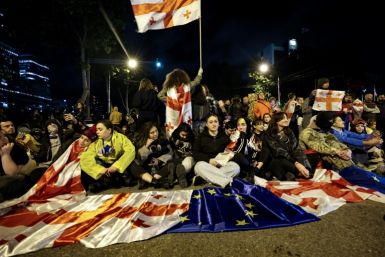Australian Stock Market Report – Afternoon7/20/2012
MARKET CLOSE
(4.30pm AEST)
The Australian sharemarket lost a little ground for the second time this week, with the All Ordinaries Index (XAO) easing by 0.1 pct or 5.8 pts to 4230.6. Keep in mind that shares yesterday recorded their best daily improvement for the month, with the XAO jumping by close to 2 pct. Over the past five days, stocks rose by 2.7 pct, making it the best weekly gain since late February this year.
The Ten Network (TEN) was in a trading halt this morning ahead of an announcement. At around 11am (AEST), the company said it had agreed to sell its underperforming outdoor advertising business, Eye Corp for around $145 million to a private equity group. TEN shares rose by 1.98 pct or 1 cent to 51.5 cents but its shares are still down 36 pct this calendar year.
Logistics company, Toll Holdings (TOL) was another outperformer, with its shares rising 7.57 pct or 29 cents to $4.12. Amongst other things, TOL hired an advisor to review its Japanese unit.
The oil and gas producers fell modestly today, with the sector easing by 0.29 pct. The energy sector jumped by more than 4 pct yesterday following healthy production numbers from both Woodside Petroleum (WPL) and Santos (STO).
Iron ore miner, Fortescue Metals (FMG) slumped by 5.01 pct or 23 cents to $4.36, taking the losses for the week to 3.5 pct. FMG has lost ground for four consecutive weeks. One of the reasons for the weakness is the fact that FMG announced a cost blowout a few days ago. Iron ore prices (spot market) are trading at their lowest levels in eight months.
The big four banks finished in the red today, with Commonwealth Bank (CBA) slumping 1.4 pct or 78 cents to $55.12. ANZ Banking Group (ANZ) dropped 0.69 pct or 16 cents to $23.07 while both Westpac (WBC) and National Australia Bank (NAB) eased by around 0.4 pct.
Australia's two largest miners, BHP Billiton (BHP) and Rio Tinto (RIO) ended higher, with BHP jumping by 0.84 pct or 26 cents to $31.36.
There was no market moving economic data released in Asia today, however most sharemarkets ended in the red. Shares in japan slumped by 1.4 pct, China's Shanghai Composite index dropped 0.74 pct, while stocks in Hong Kong and South Korea ended largely unchanged.
No major economic data is expected to be issued tonight in Europe. Last night, German lawmakers backed the €100 billion Spanish bailout overwhelmingly as expected. Spanish leaders also approved tough austerity measures (spending cuts) aimed at reducing Spain's deficit. Spain is the 17-nation Eurozone's fourth largest economy and has an unemployment rate of almost 25 pct.
Amazingly, Yahoo's new Chief Executive, Marissa Mayer could be making anywhere from US$40 million to US$70 million this year in her new role. She previously worked for Google for 13 years, is only 37, was the first female engineer at Google and is due to deliver a baby boy in October this year.
In the U.S tonight, no major economic news will be issued however around 14 large American businesses are scheduled to announce their second quarter (April to June) profit results. This will include General Electric, Xerox and Vodafone.
General Electric (GE;us) is one of the world's biggest companies and is diversified in the technology and financial services sectors. It is involved in everything from power generation, aviation, and water processing. It has a market capitalisation of around US$209 billion (around four times as large as Telstra).
Volume of shares traded came in at 1.42 billion today, worth just $4.03 billion. 496 shares were up, 395 were weaker and 331 ended unchanged. Activity has picked up a little over the past few days.
At 4.30pm AEST on the Sydney Futures Exchange, the ASX24 futures contract is up 0.17 pct or 7 pts to 4172.
Due to daylight savings, most major European markets are now trading between 5pm (AEST) and 1.30am (AEST). Futures are currently pointing to a weaker start to trade.
U.S futures are pointing to a lower start to trade tonight also. Due to daylight savings taking place in the second week of March in North America and the end of daylight savings in Australia, U.S markets will now be trading between 11.30pm (AEST) and 6am (AEST).
Turning to currencies, the Australian dollar (AUD) has strengthened and currently trades at a six-week high against the greenback. The AUD buys US104.1 cents, is trading at £66.3 pence and €84.89 cents. Over the past three months, the AUD has gained by 7.5 pct against the Euro and is very close to another all-time high.
Australia is a commodity based economy, with commodities in general account for almost 80 pct of all our exports over the past nine months. In essence, when the going gets tough globally, there is fear of less demand for our commodities, which tends to result in a weaker AUD.
[Kick off your trading day with our newsletter]
More from IBT Markets:
Follow us on Facebook
Follow us on Twitter
Subscribe to get this delivered to your inbox daily






